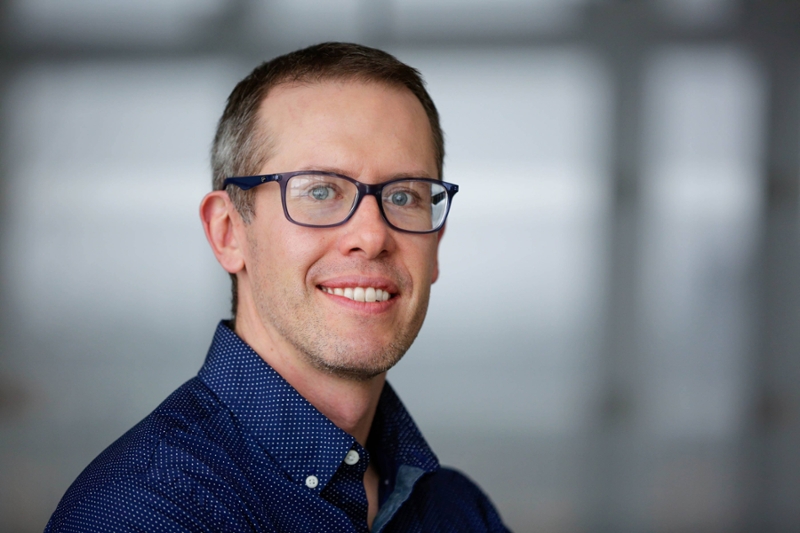
Mike Wendt

Associate Professor
Medical College of Wisconsin
mwendt@purdue.edu
765-494-0860
HANS 114
www.wendtlab.com
Cancer Biology
Active Mentor - currently hosting PULSe students for laboratory rotations and recruiting PULSe students into the laboratory; serves on preliminary exam committees
Current Research Interests:
Research in the Wendt lab focuses on pharmacological targeting of molecular players involved in the metastatic outgrowth of breast cancer. Systemic dissemination is an extremely early event in breast cancer progression, therefore we primarily focus on developing strategies that are specifically designed to target secondary tumors. We take two major approaches to this challenge: 1.Through metastatic progression breast cancer cells under epithelial-mesenchymal transition (EMT) and reverse process of mesenchymal-epithelial transition (MET). An overriding hypothesis in the lab is that through the processes of EMT:MET the hybrid epithelial states that characterize the metastatic tumor are fundamentally unique from the epithelial status of the primary tumors. We believe these differences hold the keys to developing therapeutics capable to pharmacologically treating metastatic lesions. 2.Subsequent to dissemination, a large fraction of tumor cells enter into an asymptomatic state of dormancy. The ability of normal organs to resist secondary tumor formation is the body’s last defense against metastatic disease progression. The environmental factors (drugs, alcohol, diet, etc…) capable of “awaking” disseminated cells are poorly characterized. Understanding these factors is required if we hope to design therapeutics capable of maintaining systemic tumor dormancy. We use a combination of molecular, biochemical, cell biological and whole animal studies to evaluate the impact of anticancer therapies on EMT and metastatic progression. Specifically, we utilize a variety of 3D and multicellular colculture models to evaluate growth factor signaling, pharmacological response to anti-cancer drugs, and as a platform for genetic and compound screening assays. In addition to these in vitro approaches we have developed novel in vivo mouse models of metastasis and drug resistance. We utilize these models in combination with bioluminesent imaging as a robust approach to locate and quantify metastatic progression.
Selected Publications:
Shinde A, Kulkoyluoglu Cotul E, Chen H, Smith A, Libring S, Solorio L, Wendt MK. Transglutaminase-2 mediates acquisition of neratinib resistance in metastatic breast cancer. Mol Biomed, In press.
Coleman MF, Kuloylouoglu Cotul E, Pfeil AJ, Devericks EN, Chen H, Kiesel VA, Safdar MH, Teegarden, D, Hursting SD, Wendt MK. Hypoxia-mediated suppression of pyruvate carboxylase drives tumor microenvironment immunosuppression. BioRxiv. doi: https://doi.org/10.1101/2022.04.06.487050
Akhand SA, Purdy SC, Liu Z, Anderson JC, Willey CD, Wendt MK. Fibroblast growth factor receptor facilitates recurrence of minimal residual disease following trastuzumab emtansine therapy. NPJ Breast Cancer, Jan 21st (2021).
Abdullah A, Akhand SA, Paez JS, Brown W, Pan L, Libring S, Badamy M, Dykhuizen E, Solorio L, Tao WA, Wendt MK. Epigenetic targeting of neuropilin-1 prevents bypass signaling in drug resistant breast cancer. Oncogene. Oct 30th (2020).
Akhand SA, Liu Z, Purdy SC, Abdullah A, Lin H, Cresswell G, Ratliff T, Wendt MK. Pharmacological inhibition of FGFR modulates the metastatic immune microenvironment and promotes response to checkpoint blockade. Cancer Research Immunology. Oct 22nd 2020.
Chen H, Libring S, Viswanatharaju Ruddraraju K, Miao K, Solorio L, Zhang ZY, Wendt MK. SHP2 is a multifunctional therapeutic target in drug resistant metastatic breast cancer. Oncogene. Oct 8, 2020.
- Faculty Profile

